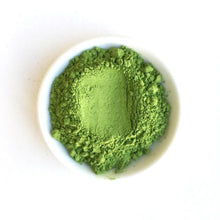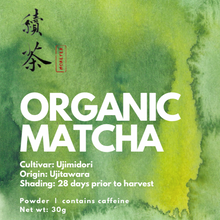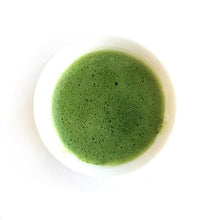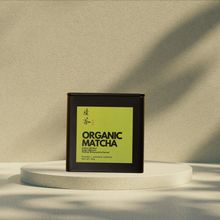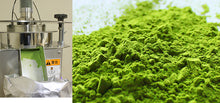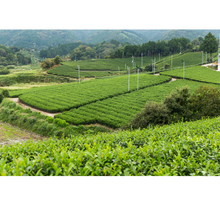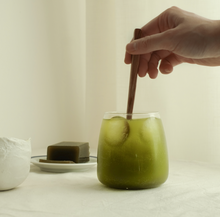
About
Our organic Matcha is cultivated by a family farm in Ujitawara that have been growing tea for over 120 years.
Matcha Powder is a jade green powder made from premium, finely-milled green tea leaves. Deeply earthy in flavor, matcha powder is powdery in texture and dissolves naturally in warm water.
Matcha powder is ideal for adding to beverages, baked goods, vinaigrettes, and more. High in vitamin A, which supports healthy skin.
What is Uji-midori
Uji-midori is, as its name suggests, a tea plant variety originally from Kyoto Prefecture where it was selected in 1985 from a seed of zairai (native) tea trees from Uji. Like all Uji cultivars, it is considered a shaded tea cultivar. It has remained very rare, and it is more rarely used for high grade matcha.
To serve
For 1 cup of tea, use 1 tsp Matcha powder(1g) and 1 cup of water at 70-82ºC. Enjoy as is or with warm milk as a latte
Storage
We recommend storing one 30-gram bag at room temperature for daily use in the screw top can or resealable bag, and the remaining in your freezer for long-term storage if you buy more than one at once.
NOTE: For freezer storage, double-seal in a plastic ziplock bag and tupperware container for maximum freshness and to avoid other food smells from affecting the matcha. Always allow the bag to sit for 24-hours before unsealing to acclimate to room temperature. This avoids condensation from damaging the matcha powder.
Did you know matcha is best when it's freshly ground?
How good your matcha is depends of course on the quality of the underlying leaf. However, producers buy many different production lots from many different farmers. Their skill, the reason why we call them master blenders, is in blending the leaves prior to grinding to create a specific profile in terms of powder color, powder aroma, grain size, matcha color, and most importantly the flavor of the matcha.
While the harvest season can make a big difference in quality since larger autumn leaves will be more bitter and more difficult to grind into fine powder, the harvest year is not necessarily important particularly right after the spring harvest (May - August). At this time, leaves may actually be too fresh to make good matcha--their flavor may create matcha that is very strong in umami but also too bitter. Meanwhile, leaves that have aged over the past year will be more mellow and perfect for balancing the fresh leaf.
Matcha however does get old quickly after grinding. In 6 months after grinding the color will fade, and the aroma will disappear. After 9 months, the strength of the flavor will also fade. As a result, higher grade matcha tends to have a best by date of 3-6 months, while lower grade matcha has a best by date of 12 months in Japan. Western brands often have a 18-24 month shelf life though.
As a rule, we do our best to ensure that the More Tea branded matcha is never older the 6 months from grinding, and that matcha other brands are never older than 6 months from procurement.







